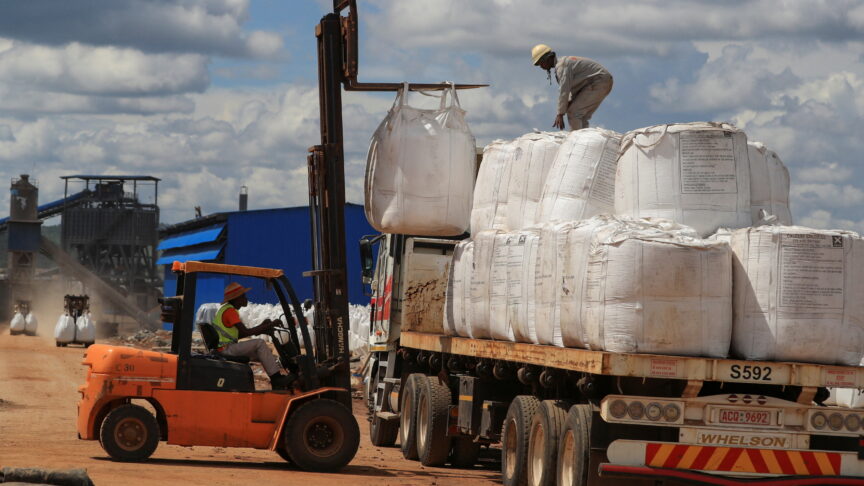The price of principle
Attention turns once again to Sri Lanka this week as the country gears up for its parliamentary elections. The EU recently decided to stop treating Sri Lanka as a preferential trading partner. What does this mean for Sri Lanka, and does it affect the EU?s clout in standing up for human rights around the world?
Amid all the excitement around EU institutional change, the European
Commission’s recent launch of a consultation on the future of its trade
instruments under the World Trade Organisation – the Generalised System of
Trade Preferences (GSP) – went largely unnoticed. But those who want the EU to
be an effective actor to promote human rights should care, because GSP+, one of
the few EU human rights instruments that is not isolated from other areas of
policy towards third countries, forms part of this.
In
February, the EU announced that Sri
Lanka’s GSP+ status will be suspended in
response to overwhelming evidence that the government was falling well short of
its obligations under a number of key international conventions. Countries must
respect these obligations in order to qualify for preferential access to EU
markets.
This
decision is not without its costs. It threatens many thousands of jobs in the
Sri Lankan textile industry and consequently the standard of living of many.
The EU is Sri Lanka’s number
one export partner, and according to the Commission’s most recent figures, the
textile industry accounts for more than 55 percent of the value of Sri Lanka’s
exports to the EU. However, it does at least show that the EU is sometimes
willing to use the leverage that it has for its treaty-based principles.
Will
this be effective? Sri Lanka
could lose over €100 million annually due to EU withdrawal of preferential
tariffs on their produce. Yet the government of Sri Lanka appears remarkably
defiant in the face of the likely impact of the suspension from August 2010,
arguing that they have other options for their textile exports, most notably US
markets. In advance of the EU’s announcement, Sri
Lanka started to turn to other partners – China, Iran
and Libya
– for financial and military aid.
In
this environment, can the EU afford to have principles? Since GSP+ status is
largely to the benefit of the developing market in return for observance of
international human and labour rights standards, the hit either way on the
consumer in the EU is unlikely to be too noticeable. So yes, the EU can afford
to, but is it worth it, if other markets are open to serious human rights
abusers with no strings attached?
This
is where the EU has to play its cards carefully. Until the sanction comes into
force in August 2010, it would still be in the interest of the Sri Lankan
government to show progress in tackling human rights abuses. What is being
offered from other partners in terms of military and financial aid helps them,
but is not preferential access to important markets at such a reduced rate. In
the run up to the Sri Lankan parliamentary elections on April 8, loss of jobs
in the garment industry must matter.
The
coming months are the real test of whether the GSP+ can work – not just as a
deterrent for governments more wary of the EU, but as a lever for change in
countries that have proved themselves resistant at all levels to diplomatic
pressure. This window is time-limited by market forces. Companies will
eventually take their business elsewhere, and there will no longer be any point
in the Sri Lankan government responding to the artificial tie between their
respect for human rights and international humanitarian law, and the
competitiveness of their textile industry.
After
so many broken promises, can the Sri Lankan government really win back
confidence that it is committed to improving its human rights record? Impunity
persists for serious abuses on both sides during more than 25 years of civil
war, and the current situation is moving backwards. Since the presidential
elections in January, the environment has become even more dangerous for
journalists and activists. In March, the parliament voted to extend emergency
regulations, which have been widely used to enable this repression, until after
the legislative elections in April.
Official
discussions are nevertheless underway to look for a path back to Sri Lanka’s
GSP+ status. What is needed are some clear indicators of progress that would
set Sri Lanka on a genuine path towards respect for human rights, so that the
EU’s principled decision earlier this year does not come to nothing. An
immediate end to the emergency legislation, and the arbitrary arrests and
enforced disappearances that it facilitates, would be a good starting place.
Beginning an independent review of the Sri Lankan criminal justice system that
allows torture, ill treatment and a broad range of other injustices would be
another. Above all the indicators need to be concrete.
Getting
this right matters, and not only for the future of Sri Lanka. Other recipients of this
special trade status – Azerbaijan,
Colombia and Honduras among
them – will be watching this test case with interest. It is likely to shape
their assessments of whether the human rights component of the EU’s external
relations is just talk, or something more important. GSP+ is only one part of
this much bigger problem, to which post-Lisbon Treaty Europe needs to give an
answer. Is the EU really committed to using its influence to promote and
protect its values in its international relations? Indeed, is it capable of
doing so? What price is it willing to pay in its wider relations for these
ideals? And if, in the changing global environment, it is not, or it cannot, is
anyone else going to?
This piece was first published by E!Sharp.
The European Council on Foreign Relations does not take collective positions. ECFR publications only represent the views of their individual authors.


